I have a unique double corresponding to a variation of three strings. I want to populate a dictionary or something such that I can call something like dict[key1][key2][key3] and get the value.
I've tried a whole bunch of things like
Dictionary<string, Dictionary<string, double>> dict = new Dictionary<string, Dictionary<string, double>> {
{ "Foo", {"Bar", 1.2 } },
{ "Foo", {"Test", 3.4 } }
};
Which gives me syntax errors and errors like "Error 4 A namespace cannot directly contain members such as fields or methods"
And
Dictionary<double, Tuple<string, string>> dict = {
{1.23, "Blah", "Foo"}
};
Which gives me errors like "Error 1 Can only use array initializer expressions to assign to array types. Try using a new expression instead."
And
object dict = new Dictionary<string, Dictionary<string, Dictionary<string, string>>>();
dict["k1"] = new Dictionary<string, Dictionary<string, string>>();
dict["k1"]["k2"] = new Dictionary<string, string>();
dict["k1"]["k2"]["k3"] = 3.5;
Which gives me syntax errors and errors like "Error 2 Invalid token '"k1"' in class, struct, or interface member declaration"
How should I go about this? Thanks in advance.
![enter image description here][1]

Edit: Trying Jonesy's code:
namespace WindowsFormsApplication1
{
public partial class Form1 : Form
{
string[] grades = { "Grade 1", "Grade 5", "Grade 8", "ASTM A325", "316 Stainless", "Monel", "Brighton Best 1960" };
string[] sizes = { "#1", "2", "3", "4", "5", "6", "8", "10", "12", "1/4", "5/16", "3/8", "7/16", "1/2", "9/16", "5/8", "3/4", "7/8", "1", "1-1/8", "1-1/4", "1-3/8", "1-1/2" };
var dict = new Dictionary<string, Dictionary<string, Dictionary<string, double>>>();
dict["k1"] = new Dictionary<string, Dictionary<string, double>>();
dict["k1"]["k2"] = new Dictionary<string, double>();
dict["k1"]["k2"]["k3"] = 3.5;
public Form1()
{
InitializeComponent();
}